
Discover the average professional organizer cost, what influences pricing, and how to budget for your next home organization project.
Go beyond the keep, sell, and donate piles next time you declutter


Even the most spacious home can feel small when it's overrun by clutter. When you don't know what to do with a previously loved item, you're likely to throw your hands up in frustration and call it quits on the whole decluttering process. As you work to clear out unused items from your home this season, consider expanding your ideas of what can be done with old items in your home. Check out the tips below to go beyond the keep, sell, and donate piles.
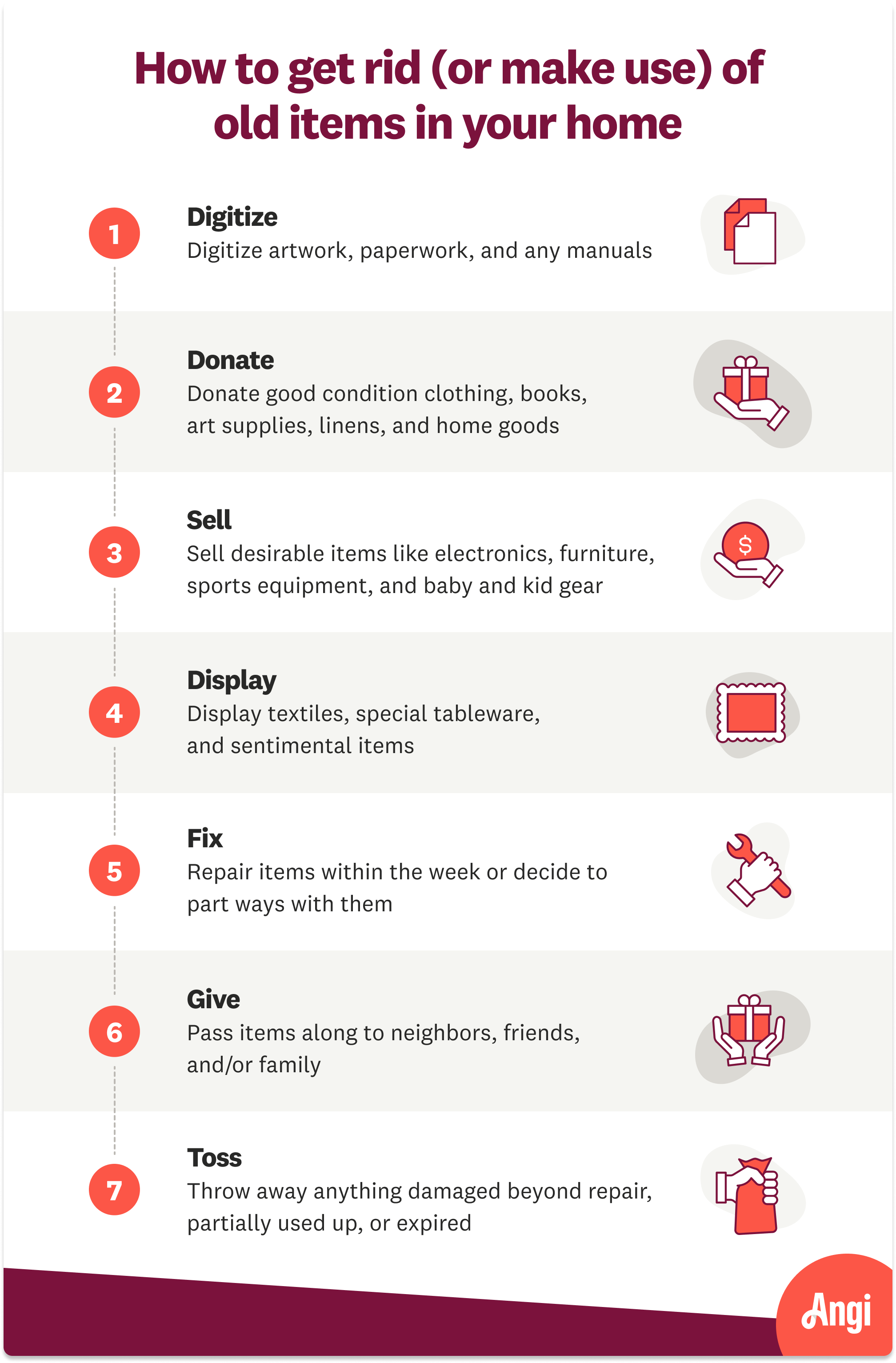
Digitizing can be an effective solution for both sentimental items and important documents. Things like kids’ report cards, artwork, and family pictures and prints can be hard to part with but are often more accessible and shareable once you’ve scanned them into a family shared drive and tossed the originals. Non-sentimental items like old tax documents, appliance care manuals, and other financial documents are often easier to locate using the search function in an online folder than by digging through cabinets or drawers, especially if you struggle to keep your home office organized.
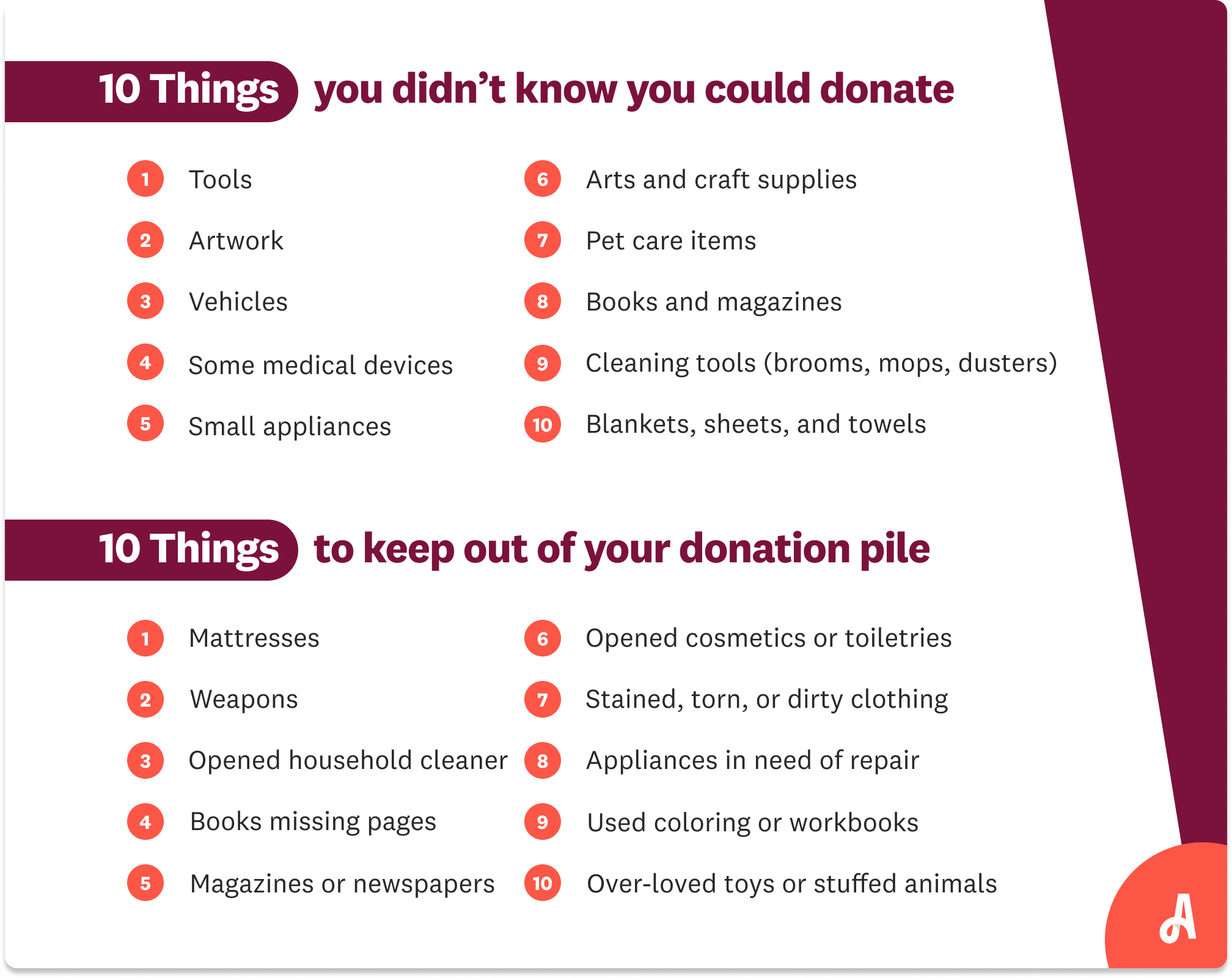
The donate pile is an integral part of any plan to declutter. Thrift stores are the usual go-to place for your used items, but consider reaching out to local schools, refugee resettlement and support agencies, or organizations that support people leaving domestic violence situations to find out what items people need the most.
Once you know what would make a big difference to others, you're likely to identify things you don't really need or use and can pass along. Consider adding books, craft and art supplies, shoes, lunch boxes, organizational storage items, backpacks, luggage, dishes, cookware, small appliances, sheets, towels, and more.
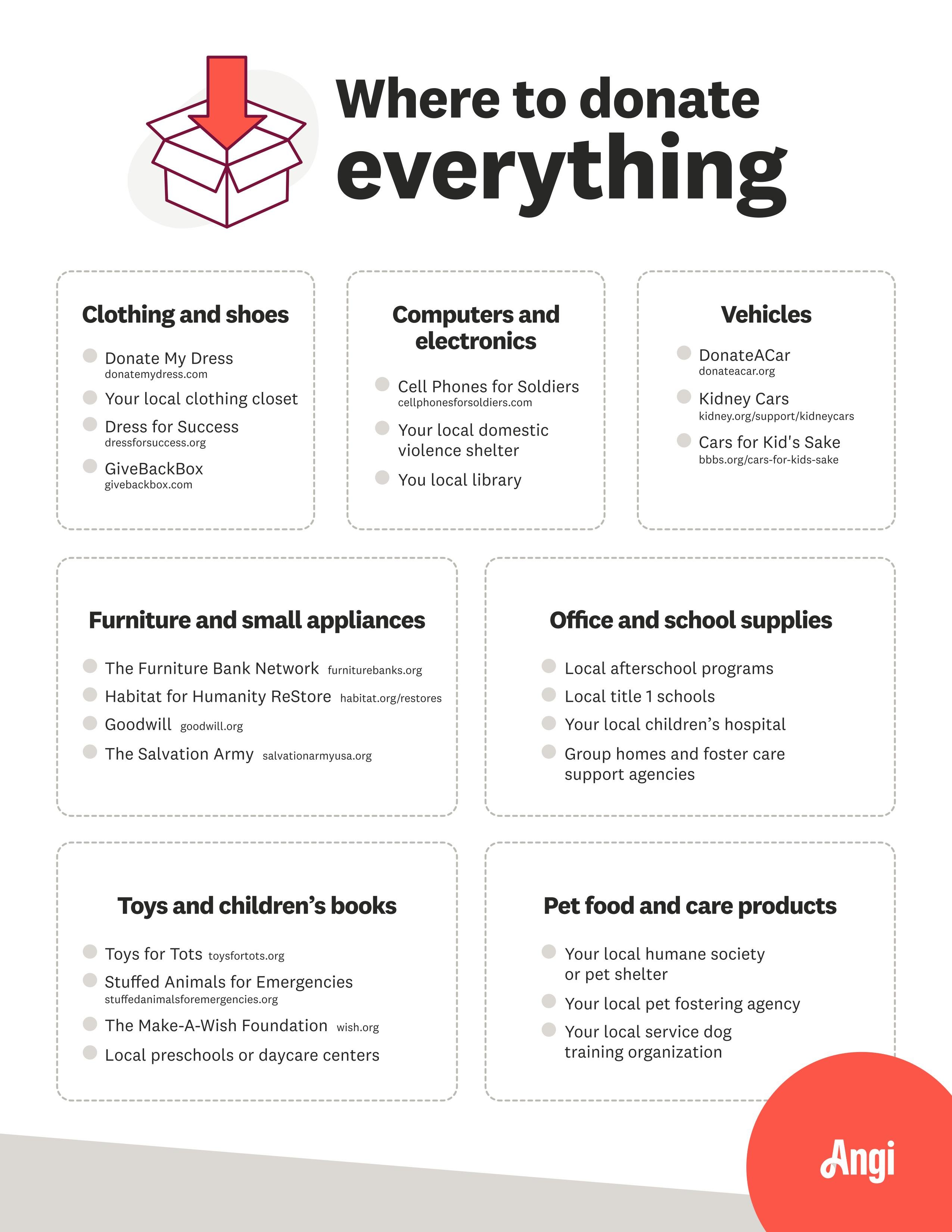
While you can never go wrong with a good old-fashioned yard sale if you have many items, sales websites have made it easy to sell just a few items and get your goods in front of the people who want to buy them. Working but unused items that sell quickly and make the most money online include electronics, furniture, sports and exercise equipment, baby gear, and tools.
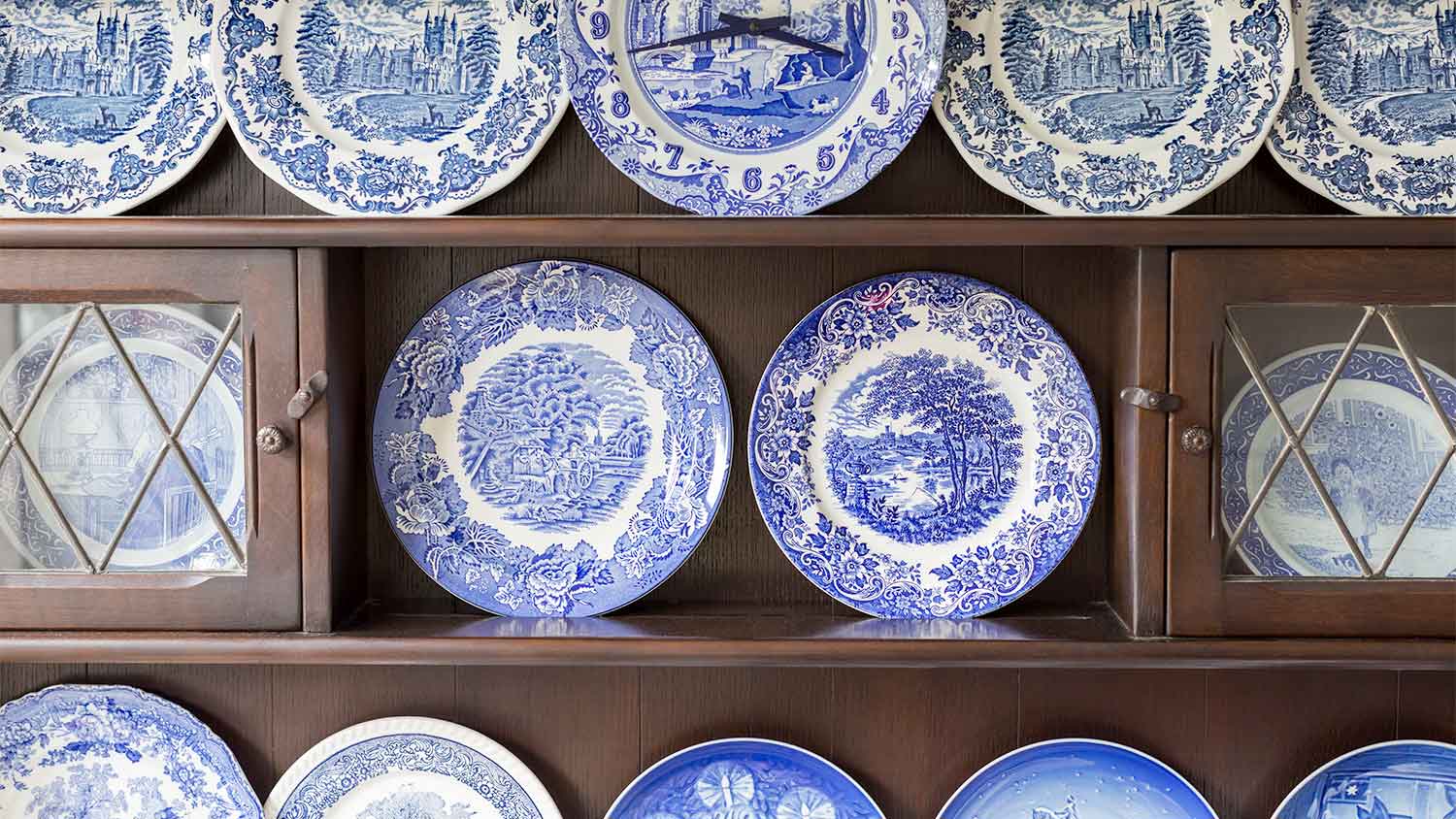
As you clean out closets and empty out cupboards, you’re likely to come across items you’ll never or rarely use again but can’t bear to part with. Repurpose textiles into quilts or stuffed animals or tack into shadowboxes to hang on your walls. Or display dishes, like that family china that feels too fragile to actually eat off of, as decor in the kitchen, dining room, or a glass-front cabinet.
You may have some items you’re hesitant to give or throw away but are broken or damaged. When you pull out that old favorite pair of pants that has been missing a button for years or the broken garage door opener, pause to evaluate your next steps. If you’re able to take action to fix the item within one week, set it aside in the repair pile, and then actually take action. If you’re not able to commit to getting your item in working order within a week, it’s time to let it go.
If you have things you want to get rid of quickly and live in a metropolitan or suburban area, there’s usually no quicker way than the curb alert. Simply set your item on the curb with a “free” sign, and watch as someone who needs or wants it takes it within just a few hours. Curb alerts tend to work best for items that might be tough for you to take to a donation center, like bed frames or couches or mid-value, medium- to large-size items like kids' toys or home goods that are quick to catch the eye of someone walking or driving past.
After carefully placing many of your items in their designated pile, you’re likely to still have some things you need to get rid of. While no one wants to contribute to landfill overflow, the reality is there’s not much else to be done with items like opened or partially used makeup or toiletries, expired pantry items, toys that are broken beyond repair, and stained or damaged clothing.
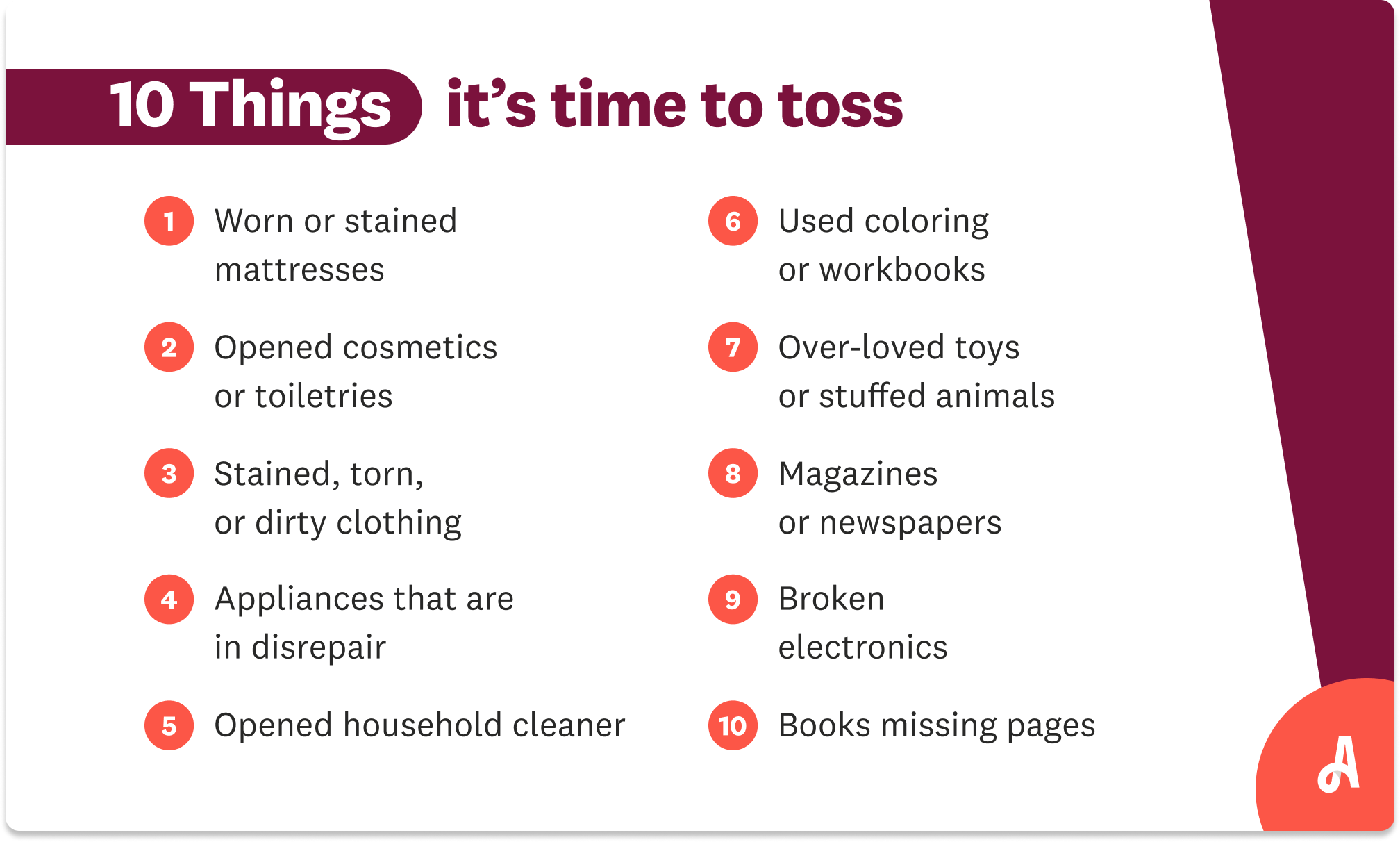
While decluttering can be challenging, the final result is often a home that’s quicker to clean and easier to enjoy. As you clear out older items in your home this season, thinking beyond the landfill can help you feel confident that you’re passing them along to the right people and places.
From average costs to expert advice, get all the answers you need to get your job done.

Discover the average professional organizer cost, what influences pricing, and how to budget for your next home organization project.

When was the last time you cleaned out your spice rack or linen closet? Our list of 12 things to get rid of in just one hour helps you toss what is old, expired, or no longer needed. Decluttering is faster and easier than you might think.
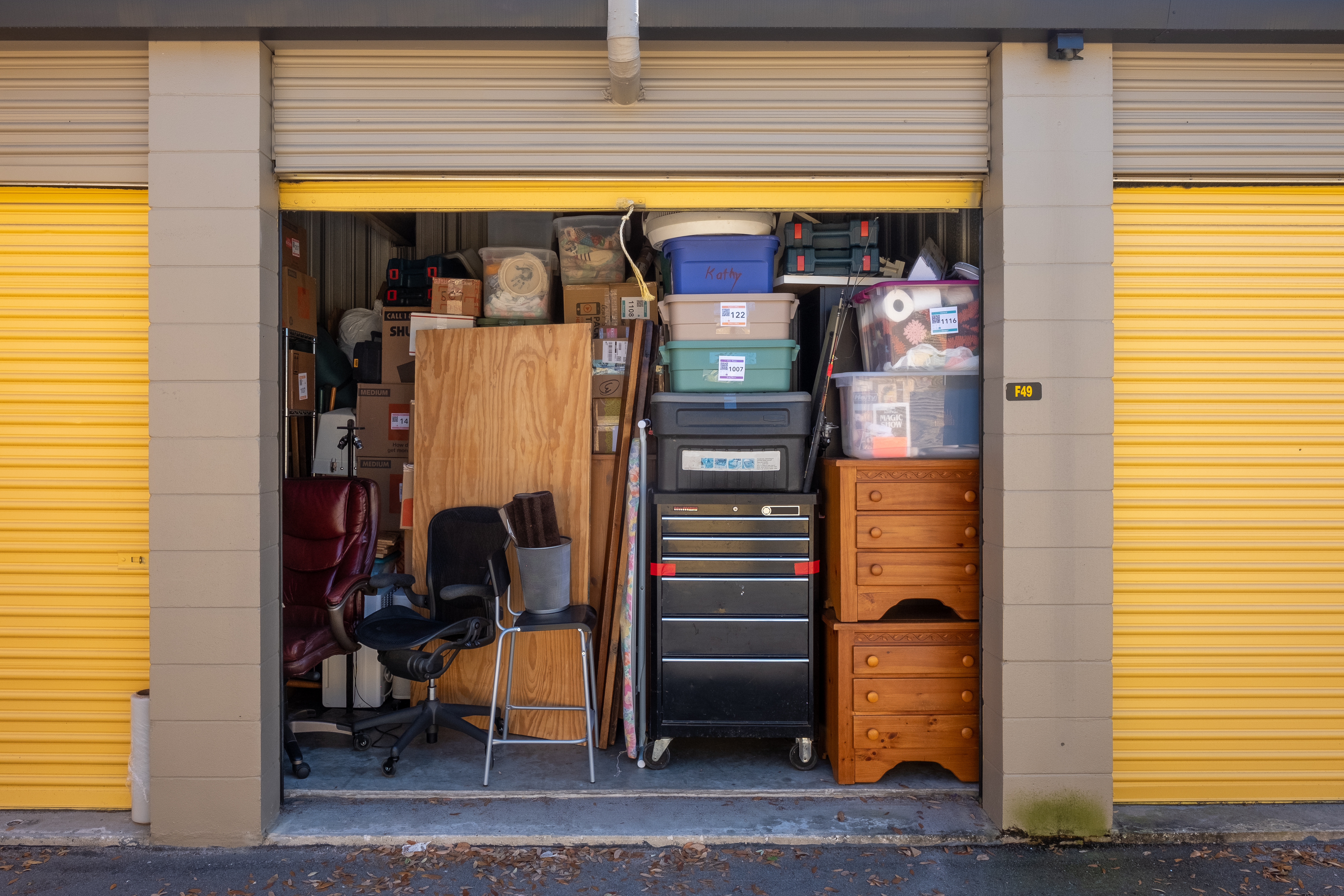
Maximize space and save money with these expert storage unit tips. Smart packing strategies and organization hacks included.

If your home is a bit messy, that’s perfectly normal. Trusting a professional home organizer to revamp your space can be worth the cost. Here’s how to find and hire a professional organizer.
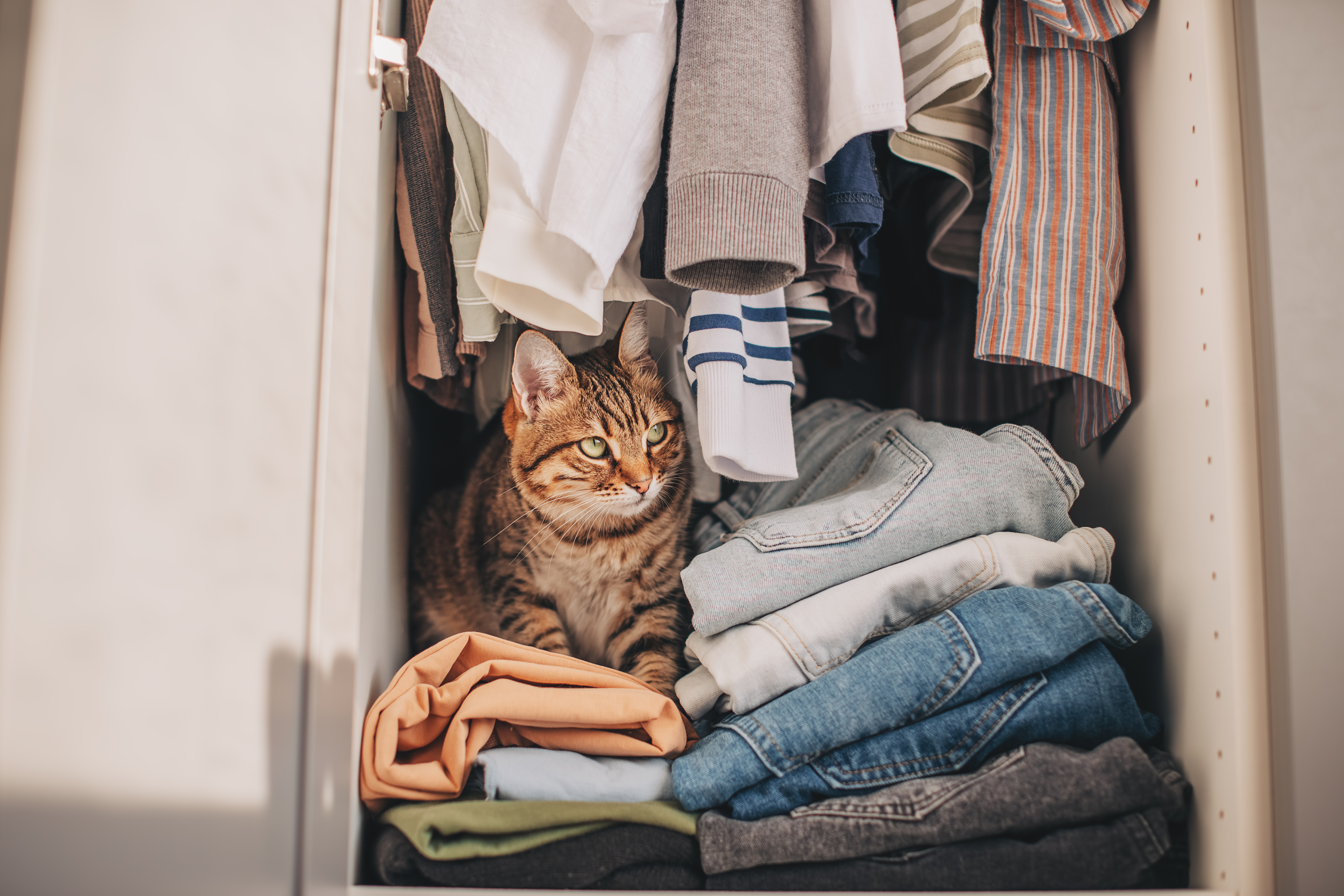
Discover small closet organization tips to maximize space, reduce clutter, and create a stylish, functional storage area that suits your needs.
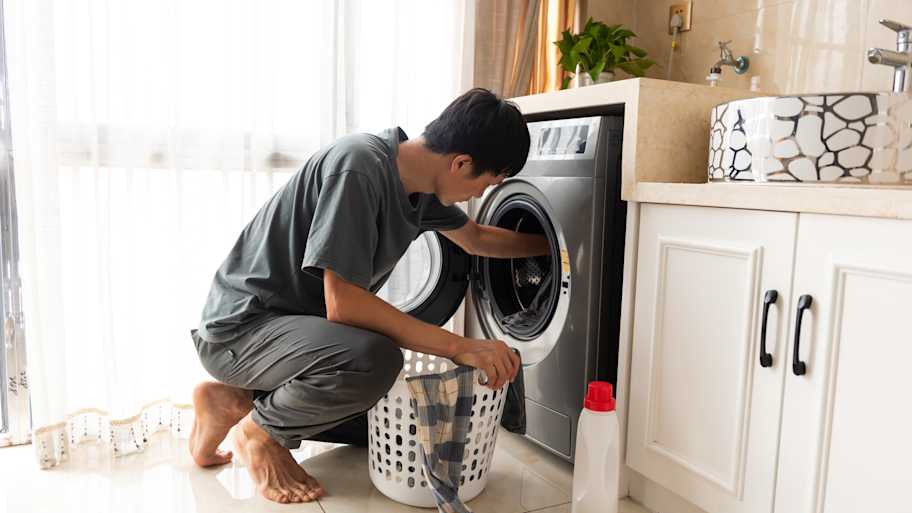
Maximize space and reduce clutter with these smart laundry room organization tips that boost function and even your home’s resale appeal.